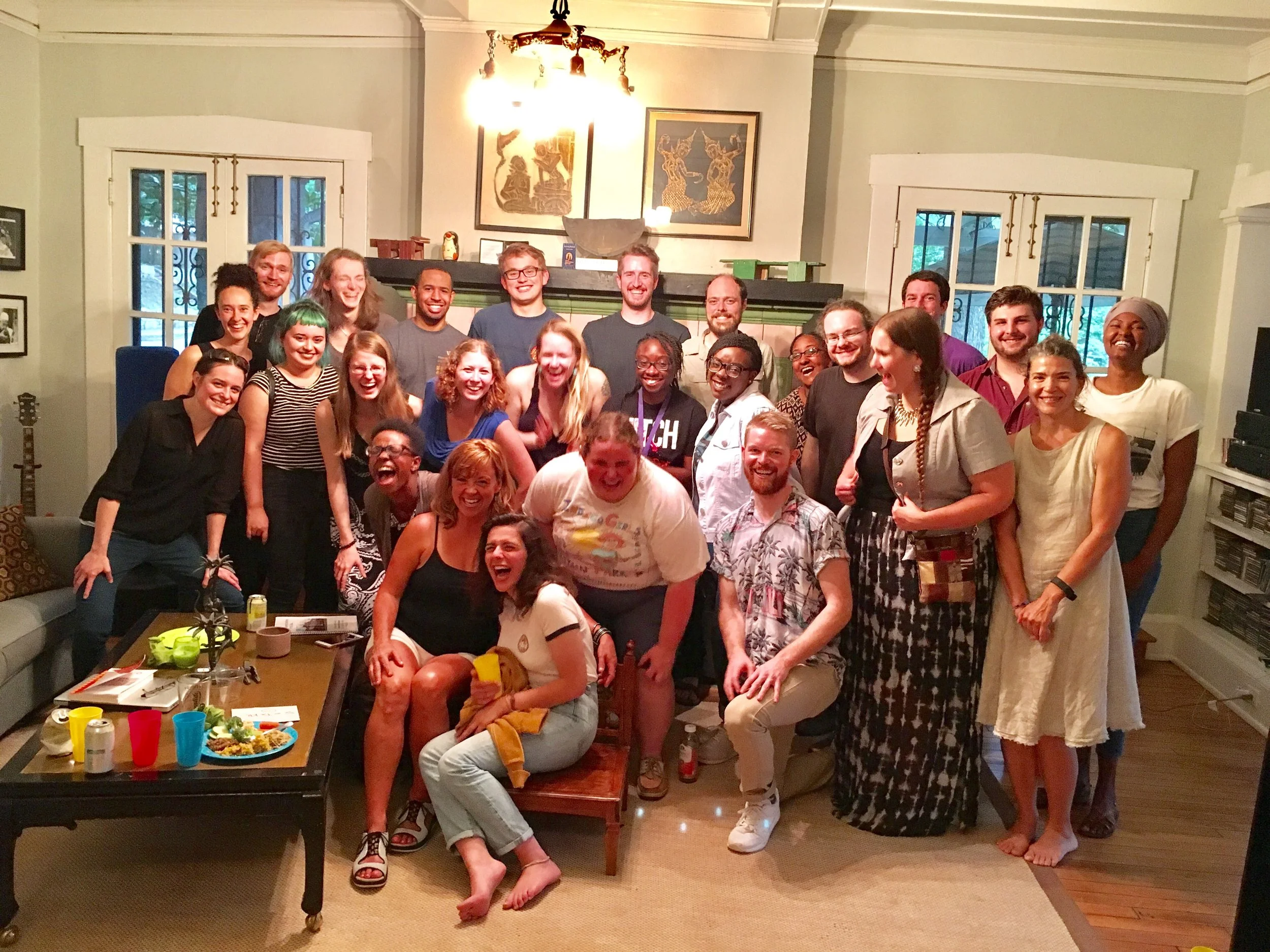Words on the page.
A few weeks ago, a friend of mine sent me a tweet: "Any book recommendations teachers of writing or any adult could use to cultivate their own writing journey?"
Answer: Of COURSE! Here are five suggestions -- four of them books -- from off the top of my head. There are so many writing books out there, many that I haven't read, and I bet that if anyone else wrote this post, they would list five different ones. What are your favorite recs? Would love to see them in the comments.
5. On Writing: A Memoir of the Craft by Stephen King. I will be honest and say that I read this one several years ago, and parts of it blur in my memory, but I do remember greatly enjoying it. As one who's never been a big horror/suspense reader, this is the only Stephen King book I've read, and I was still fascinated by his tales of how he created his classics -- and, of course, his perspective as a writer. It's wonderfully readable.
4. The Art of Memoir by Mary Karr. Speaking of readability, Karr's latest book (she's also written the best-selling memoirs The Liars' Club and Lit) also ranks high. She teaches writing at Syracuse, and has put many of her best lessons into this book, while also giving examples from her own literary life.
3. The Situation and the Story: The Art of Personal Narrative by Vivian Gornick. This is the first book that my first graduate school advisor had all of his memoir students read. It's a fascinating exploration of personal writing's internal and external structure. For me, at the time that I read it, Gornick's reflections on writing voice were most helpful. The narrator of a memoir needed to be "me but not me," Gornick said; this was a phrase that I would return to many times as I hashed out my manuscript. No matter what type of writing you're doing or your ultimate goal, this book is worth a read. BrainPickings has a great article on it, as well, to give you a further sense of the content.
2. The Artist's Way by Julia Cameron. This book is a 12-week guide for artists of any kind (humans of any kind, really), meant to spark your creativity and self-discovery. I started TAW in August 2012. A couple of months later, I wrote: "I'm currently in the midst of Week 8. There are a lot of questions and exercises and thought processes to go through, and I've enjoyed that. Most importantly, this program has taught me to write morning pages. Three pages every morning of whatever spills out of my mind. Even though I've journaled continuously for ten years, this is probably the most honest writing I've ever allowed myself to produce. And I feel like it's opened me up off the page too, with the desire to talk and laugh and be earnest and true with myself and others. Easier said than done, but it's a start."
1. Writing in the morning. This isn't a book, but it stems from The Artist's Way (as you can see above), and I also think that all of the books in the world can't replace the act of physically writing (by hand) at least once a day. I know this because I didn't do it for nearly two years, overrun with work + school + life. I missed it, but I didn't know how to return to it. It felt like a big thing to return to, and it may feel like a big thing to start, if you've never done it before. But suddenly, I started up again. Now I sit on the edge of the bed, set my clock for 3-5 minutes (depending on how late I've woken up), open to a fresh blank page, and write whatever comes out. Sometimes I write two pages, other times (like today), it's just one. Sometimes it has a flow and makes sense, other times it doesn't. And I hardly think about it. The words just appear, moving me along with them.
This has become such an important practice for me. Not only does it make me write regularly, making me a better writer by habit ("butt in chair," Anne Lamott says, and I have a love/hate relationship with the fact that she's right), but it clears my brain for the day ahead. It allows me to write down goals, responses, plans (if that's what happens to appear on the page)... or just random emotions, experiences, questions. This PsychCentral article talks a lot about the benefits of this type of therapeutic writing, in case you need more convincing. (Besides, who doesn't need to just write "Crap. Crap. Crap. Crap. Crap." every once in awhile?)
In 2012, I also wrote this: "In The Artist's Way Cameron talks a lot about the concept of synchronicity, urging us to notice how elements and events and relationships in our lives become intertwined or connected in ways we did not expect or plan."
I think that my daily writing practice also gives me a chance to recognize these moments of connection, on my own or with others. And you never know when you'll stumble into something that needs more than a page or two to be written about. That's where the books can help, encourage, and guide. But ultimately, nothing can beat the simple act of putting words on the page.
You can do it. Start here.




